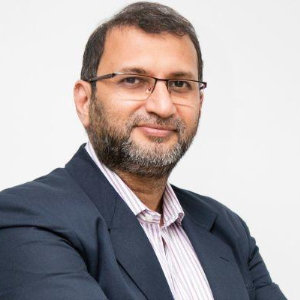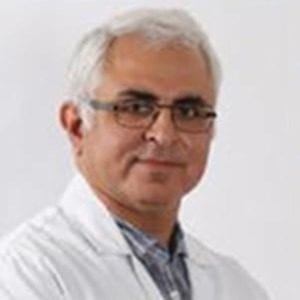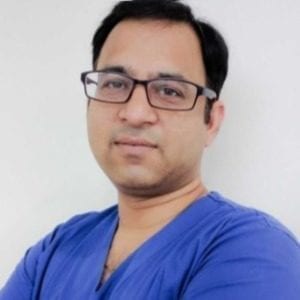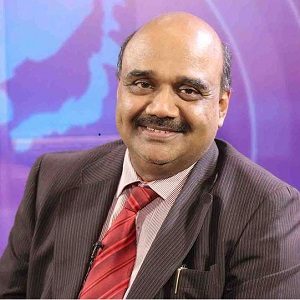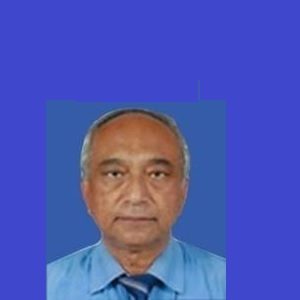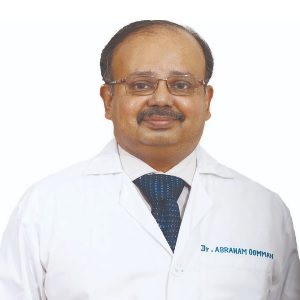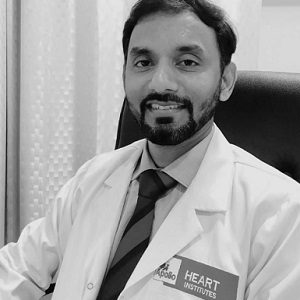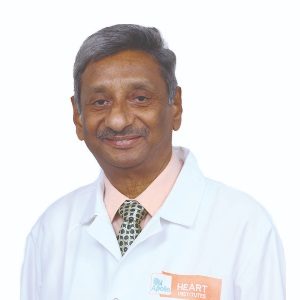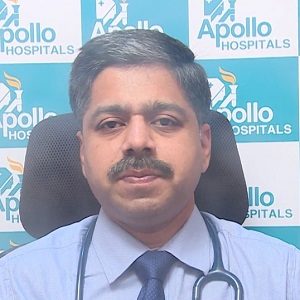Best Radiofrequency Ablation Doctors in India
- Cardiac Surgeon, Mumbai, India
- Over 24 years’ experience
Profile Highlights:
- Dr. Zainulabedin Hamdulay is one of the best cardiac surgeons in Mumbai, India, and specializes in devising new and innovative techniques for cardiac surgeries.
- He has 24+ years of experience and has performed over 8000 cardiac surgeries that included complex valve repairs, congenital cardiac surgery, CABG, and several minimally invasive cardiac surgeries.
- With a motive to provide the best, affordable and comprehensive cardiac care to all his patients, he founded the Hamdulay Heart Foundation to provide aid to the economically backward community.
- Cardiologist, Gurugram, India
- Over 20 years’ experience
Profile Highlights:
- Dr. Hemant Madan is an experienced and accomplished cardiologist, with a professional experience of around 20 years.
- His expertise includes all aspects of cardiology, including pediatric cardiology, complex coronary interventions, device implantation, all kinds of rhythm disorders, percutaneous treatment of valve stenosis, and peripheral interventions.
- Dr. Madan pursued his Fellowship at the Royal College of Physicians from Edinburgh in UK.
- Cardiac Surgeon, Gurugram, India
- Over 15 years’ experience
Profile Highlights:
- Dr. Rachit Saxena is an experienced cardiac surgeon, who is known for his extreme dedication to his profession, and for providing absolute patient satisfaction.
- Supported by an efficient cardiac surgical team, Dr. Saxena is known for successfully managing the most complex of cardiac surgical problems.
- Dr. Rachit Saxena is known especially known for the capability to perform cardiac surgery with minimal blood requirement and ensure early mobilization and return to work.
- Cardiothoracic Surgeon, Chennai, India
- Over 25 years’ experience
Profile Highlights:
- Dr. T Sundar is one of the best cardiothoracic surgeons in India.
- He is having extensive exposure to critical heart diseases and he has operated on them successfully.
- Dr. T Sundar is a Senior Consultant at Apollo Hospitals since 2003.
- He has been associated with international standards of surgery and diagnosis since his education period.
- Cardiothoracic and Vascular Surgeon, New Delhi, India
- Over 36 years’ experience
Profile Highlights:
- Dr. N Sastri is a renowned cardiothoracic surgeon in India with extensive experience in critical heart surgeries.
- He has nearly 36 years of experience and is a senior consultant- Cardiothoracic & Vascular Surgery with Indraprastha Apollo Hospitals, New Delhi.
- Dr. Sastri specializes in the diagnosis and treatment of vascular disorders using advanced techniques. He has expertise in Total Anomalous Pulmonary Venous Connection Repair, Arterial and Ventricle Defects Surgery, Cardiac Resynchronization Therapy, Balloon Valvuloplasty, CABG LV restoration, PDA Device Closure, PPI, Valve Replacement, and Atrial Fibrillation Surgery.
- Over the years’ Dr. Sastri had treated patients across various countries. In addition to the adult and neonatal cardiac surgeries, he is involved in research and put out many research papers in different medical journals.
- Interventional Cardiologist, New Delhi, India
- Over 47 years experience
Profile Highlights:
- Dr. Prashanta Kumar Ghosh is a senior cardiologist at Indraprastha Apollo Hospital in New Delhi with experience of nearly 47 years in the field.
- Dr. Ghosh has expertise in testing and monitoring cardiac problems. The procedures mainly include minimally invasive cardiac surgery, implantations, device closure for congenital heart diseases, cardiac catheterization, Carotid Angioplasty, Stenting, etc. Half of his experience came from practicing non-invasive cardiology.
- He has so far performed nearly 3 lakh Echos as well as thousands of Doppler and Trans Esophageal Echos in his professional journey.
- Dr. Ghosh has participated in many studies and published papers in various conferences and journals. He also delivers lectures to the students of many institutions across India and abroad.
- Cardiologist, Chennai, India
- Over 31 years’ experience
Profile Highlights:
- Dr. Abraham Oomman is one of the best Cardiologists in Chennai, having an experience of 31 years in this field.
- Dr. Oomman offers consultation and also performs cardiac procedures. He specializes in Preventive Cardiology, Interventional Cardiology, Rheumatic Heart Disease, and Lipidology.
- Patients also visit him for ASD and VSD Surgery, Dextro-Transposition of the Great Arteries (DTGA), Minimally Invasive Cardiac Surgery, and Vascular Surgery.
- Cardiologist, Chennai, India
- Over 22 years’ experience
Profile Highlights:
- Dr. Refai is a world-renowned cardiologist who practices at Apollo Hospital in Greams Road, Chennai.
- Dr. Refai completed advanced training in the United Kingdom after finishing his medical degrees in India.
- He specializes in Angioplasty (Stent implantation), Implantable Cardioverter-Defibrillators (ICDS), Transradial Rotablation, Chronic Total Occlusion Angiography, Pacemaker, Cardiac Invasive Procedures, Bypass Surgery, and other cardiovascular procedures.
- He was involved in many TAVI-related studies at King’s College Hospital in London, and a heart failure pilot trial at The Essex.
- Interventional Cardiologist, Chennai, India
- Over 38 years’ experience
Profile Highlights:
- Dr. I Sathyamurthy is a veteran Cardiologist and has an experience of more than 38 years in Interventional Cardiology.
- Dr. Immaneni Sathyamurthy is a distinguished personality who bagged Padma Shri, the fourth-highest Indian civilian award. In addition to it, he was conferred many awards for his contribution to the medical sciences.
- He has over 250 publications to his credit, some of these are used as textbooks in medical courses.
- Interventional Cardiologist, Chennai, India
- Over 25 years’ experience
Profile Highlights:
- Dr. Karthigesan A M is a renowned Interventional Cardiologist with more than two decades of experience.
- He completed advanced training in cardiac arrhythmia in the USA to serve his patients in a better way.
- Dr. A M Karthigesan received several awards from prestigious associations for his contribution to the field.
- Dr. Karthigesan authored several research papers and articles in premier periodicals and presented papers at national conferences.
Best Radiofrequency Ablation Hospitals in India
Radiofrequency Ablation
Radiofrequency Ablation is a minimally invasive procedure for destroying the nerve fibers that carry pain signals to your brain. It can provide relief to people who are suffering from chronic pain, especially in the lower back, neck or arthritis joints. If you are suffering from recurrent pain and you have experienced proper relief with a nerve block injection, you are likely a candidate for this procedure.
Also, termed as rhizotomy, this procedure uses heat for reducing or stopping the pain transmission. The procedure has several benefits, which include avoiding the need for surgery, immediate pain relief, very little recovery time, decreased need for pain medication, improved function as well as a quicker return to work and other activities.
Purpose
Radiofrequency ablation is able to help patients who are suffering from chronic low-back and neck pain, which is generally related to the degeneration of joints from arthritis.
The procedure is known to be quite safe and effective, with very few complications associated with it. However, the procedure is not suitable for everyone, such as people who have an active infection or bleeding problems. It is best to discuss with your doctor if you are a candidate for the procedure if you are considering it.
Preparation
Your doctor will first need to examine your medical history and previous imaging tests so that he/she can plan the best location for the ablation. If you have any questions, you should ask them to him/her.
Patients who take aspirin or a blood thinner may need to stop it for some days before the procedure is performed. It is best to discuss which medications you can stop and which ones you are able to continue.
Procedure
You will also need to take a few precautions for the treatment.
- Do not consume food within six hours of your appointment; however, you can have any clear liquids until two hours before the procedure is performed.
- If you are suffering from diabetes and use insulin, you will need to adjust the dosage of insulin on the day of your procedure. Your doctor will help you with this adjustment. Bring your diabetes medication with you so you will be able to take it after the procedure is complete. You should be able to take any other medications with a small sip of water unless your doctor recommended against taking them.
The procedure may or may not be performed using anesthesia. If anesthesia is not used, you will be awake and conscious during the procedure. First, you will need to lie on your stomach on the surgery table. If sedation is required, an IV line will be used for it.
Next, the skin over the treatment area is cleansed, so that any risk of infection is minimized. Then the physician numbs a small area of skin, by injecting a medicine for numbing the injection site.
Fluoroscopy might be used for directing the RFA needle towards the medial or lateral branch nerves. Once the needle tip is accurately placed, an active electrode is inserted through the needle. Then a small amount of electrical current is passed next to the target nerve, at a safe distance from the other nearby nerves.
After confirming the target nerve, a heat lesion is created using radiofrequency ablation. This process might be repeated for any additional nerves if required.
The procedure should not take over 90 minutes.
Aftercare & recovery
Generally, most patients are able to walk right after the procedure. After being monitored for a while, you are usually able to leave the office or hospital. You will need to book a cab or have a friend or family member drive you home.
Any pain from the procedure can last up to fourteen days, though this is generally due to the residual effects of the nerve ablation or muscle spasm. Within three days, you should be able to resume your daily activities. Though in around ten days, you should start seeing pain relief, sometimes, it might take around three weeks.
It is important for you to schedule a follow-up appointment with the doctor so that you are able to document the efficacy and address any remaining concerns that you might have for any future treatment or expectations.
Results
The pain relief should generally last from 9 months to over 2 years. If the nerve regrows through the burned lesion created by the procedure, the relief will last for 6-12 months.
If required, the procedure can be repeated.
Risks & complications
The risk of any complications from this procedure is generally low. Though infection and bleeding at the incision site are a possibility in some cases, they are quite uncommon.
Temporary side effects can include:
- Bruising and swelling at your incision site
- Weakness or numbness in the legs

